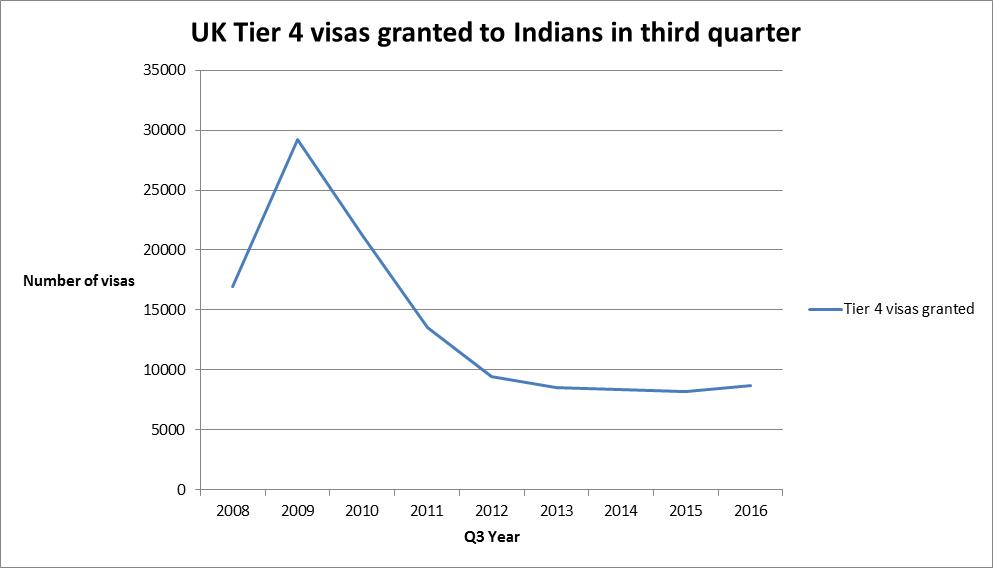The number of Indians receiving visas to study in the UK increased by 6 per cent in the third quarter of 2016 after seven years of decline, according to government figures.
Between July and September, 8,692 student visas – known as Tier 4 visas – were granted to Indian applicants, compared with 8,224 issued during the same period in 2015.
It marks the first rise in the third quarter of the year – traditionally the busiest quarter for student visa applications – since 2009, when UK student visas issued to Indians increased by 72 per cent to 29,207. The number of issued visas increased slightly from 338 to 345 in the second quarter of 2016 compared with the same period in 2015, but the third quarter increase was the first significant rise since the first quarter of 2011.
Sponsored visa applications from Indians to study in the UK increased by 5 per cent between 2015 Q3 and 2016 Q3 to 9,207, the largest number since 2013.
The 2012 abolition of post-study work visas has been mooted as one key factor for the subsequent decline.
Across all countries, there was a 2.6 per cent increase in Tier 4 visas issued in the third quarter of 2016 compared with the same time in 2015.
Richard Everitt, director of education at British Council India, said that the increase is an “important market breakthrough point”, particularly because the third quarter was such an important period.

Mr Everitt cited “deeper relationships” between UK and Indian universities, greater transparency over the Tier 4 visa application process and an increase in scholarship opportunities for Indian students as potential factors for the increase.
He added that Indian students are also choosing to study a wider range of subjects as the country’s economy “diversifies and grows”, which is beneficial to the UK.
Indian students have “traditionally” studied subjects such as business and engineering, he said. “Now we’re seeing [more choosing] law, media, fashion and a broader range of subjects, and the UK has good offers in all those areas.”
Vivienne Stern, director of Universities UK International, warned against the sector getting “overexcited” about the “slight upswing” in Indian visa applications and acceptances, but said that it provides “cautious optimism” that the industry’s work to promote the strength of the UK as a destination for study in India is “having some traction”.
She added that UK universities provide “brilliant value for money at the moment” given the fall in the pound since the European Union referendum in June.
“We are working really hard to address misconceptions about the UK as a destination for study,” she said, noting that “messages around visas are sometimes over-interpreted by the Indian media”.
In October, the Hindustan Times reported on UK home secretary Amber Rudd’s speech announcing “tougher rules for students on lower-quality courses”, saying that the plans would “add to perceptions in countries such as India...that Britain is less welcoming for international students than competing countries such as Australia and Canada”.




